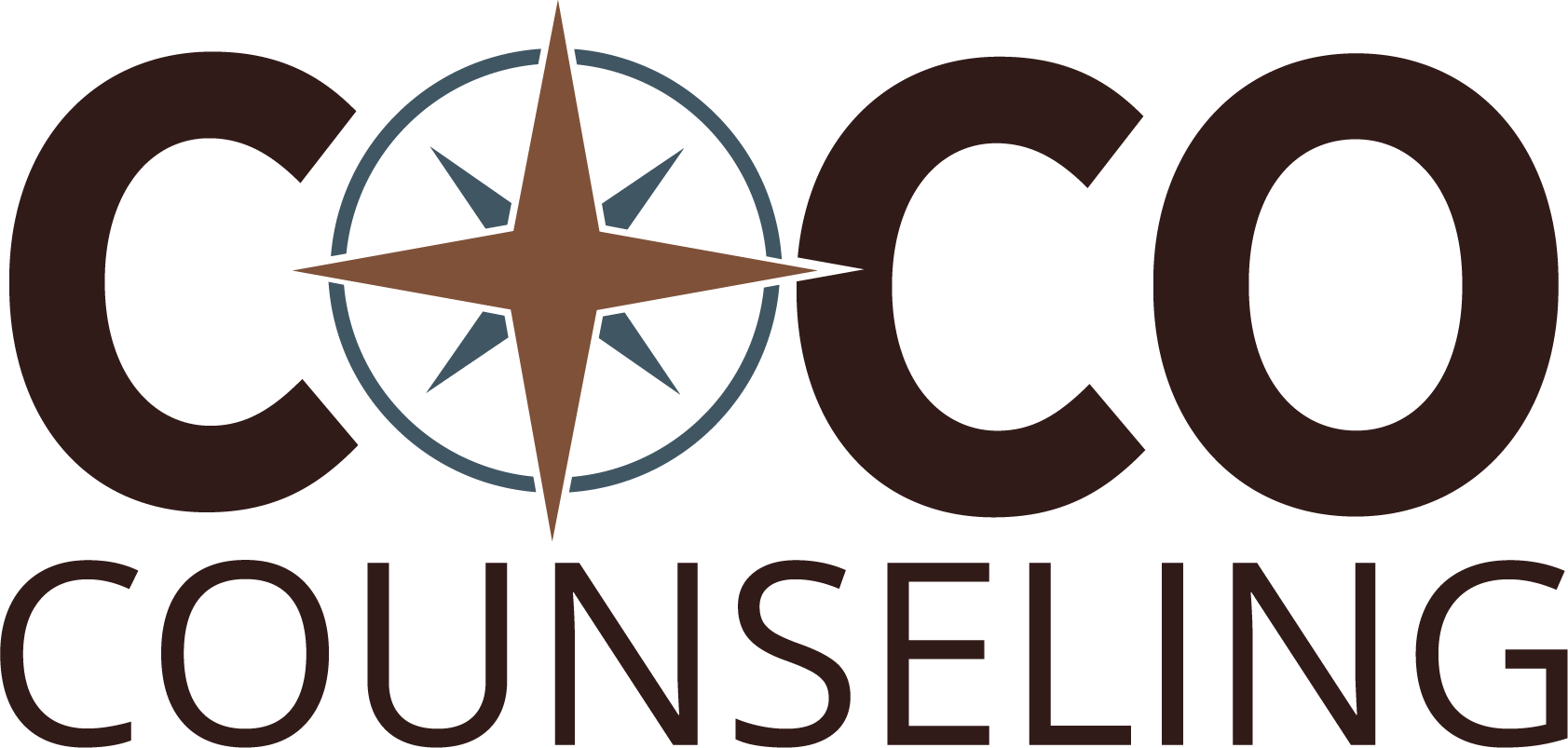Navigating Relationship Conflicts: How to Set Healthy Boundaries That Actually Work
Introduction
You're tired of the same arguments. The same patterns. The same feeling that no matter what you say or do, nothing changes in your relationships. Whether it's with your partner, family members, or coworkers, conflict feels like a dead end rather than a path forward.
Here's what I've learned in over 20 years as a therapist: conflict isn't the problem. The problem is not knowing how to navigate conflict while maintaining healthy boundaries. When you don't know how to set boundaries or communicate your needs clearly, every disagreement becomes a battle for control instead of an opportunity for understanding.
In this guide, I'll walk you through practical ways to navigate relationship conflict and establish boundaries that actually work. These aren't abstract concepts, they're tools that can transform how you handle the difficult conversations that matter most.
What You'll Learn
- Why conflict in relationships isn't something to avoid
- How to set boundaries without feeling guilty or selfish
- What healthy boundaries actually look like in practice
- How to navigate conflict with your romantic partner
- Setting clear boundaries with family members
- Establishing boundaries at work that stick
- How to communicate your needs without starting a fight
- Why respect is the foundation of all healthy relationships
- Common boundary mistakes that make conflicts worse
- How to establish clear boundaries early in relationships
- When to seek professional help for relationship challenges
- Building stronger relationships through effective conflict resolution
Why Conflict in Relationships Isn't the Enemy
Most people see conflict as a threat to their relationships. They think healthy relationships mean never arguing or disagreeing. This couldn't be further from the truth.
Conflict is a natural part of any meaningful connection. When two people spend time together, they will have different needs, wants, and perspectives. The goal isn't to eliminate conflict, it's to learn how to navigate conflict in ways that strengthen rather than damage your relationships.
Think about it this way: when you avoid conflict, you're not avoiding problems. You're just pushing them underground, where they grow bigger and more toxic. Unexpressed needs don't disappear. They build up pressure until they explode in ways that hurt everyone involved.
Healthy boundaries help you approach conflict as an opportunity for deeper understanding rather than a battle to be won. When you know how to set boundaries and communicate your needs clearly, disagreements become chances to learn more about each other and find solutions that work for both people.
Understanding What Healthy Boundaries Really Mean
Let me be direct about something: boundaries aren't walls. They're not about shutting people out or controlling others. Boundaries are about taking responsibility for your own well-being while respecting others' right to do the same.
Personal boundaries are the limits you set around what you will and won't accept in your relationships. They're about communicating your needs, values, and limits in clear, respectful ways. When you set boundaries, you're not being selfish, you're being honest about what you need to feel safe and respected.
Boundaries in relationships work like property lines. They help everyone understand where one person ends and another begins. Without clear boundaries, relationships become confusing, resentful, and exhausting. With healthy boundaries, both people can be themselves while still caring deeply for each other.
The key is understanding that boundaries help both people in the relationship. When you communicate your needs clearly, you give the other person a chance to respond appropriately. When you respect their boundaries, you show that you value them as a separate person with their own needs and feelings.
How to Set Boundaries Without Feeling Guilty
This is where most people get stuck. They know they need boundaries, but they feel guilty or selfish when they try to set them. Let me tell you something I tell my clients in Sleepy Hollow all the time: setting healthy boundaries isn't mean, it's necessary.
The guilt you feel often comes from old messages about being "nice" or "accommodating." Maybe you were taught that your needs don't matter as much as other people's comfort. Maybe you learned that speaking up causes problems. These beliefs might have protected you once, but now they're keeping you stuck in unhealthy patterns.
Start setting boundaries by identifying one area where you consistently feel resentful or overwhelmed. This is usually a sign that your boundaries need attention. Instead of continuing to say yes when you mean no, practice communicating your limits clearly and kindly.
For example, instead of saying "I guess I can help you move this weekend" when you're exhausted, try "I care about you and want to help, but I need this weekend to recharge. Could we look at another time that works for both of us?" This acknowledges their needs while also honoring your own.
Navigating Conflict with Your Romantic Partner
Conflicts with your partner often feel the most intense because the stakes feel so high. You love this person, but they're driving you crazy. You want to be close, but every conversation seems to turn into an argument.
The secret to navigate conflict in your romantic relationship is learning to fight fair. This means focusing on the specific issue at hand rather than attacking each other's character. It means listening to understand rather than listening to win. And it means being willing to find solutions that work for both of you.
When you're having a disagreement with your partner, try this approach: "I'm feeling frustrated about [a specific situation]. Can we talk about how to handle this differently?" This opens the door for conversation rather than putting your partner on the defensive.
Remember that your partner isn't your enemy, they're your teammate. Even when you disagree, you're both trying to make the relationship work. Approach conflicts with your partner as problems to solve together, rather than battles to win.
Setting Clear Boundaries with Family Members
Boundaries with family can be especially challenging because these relationships have the longest history and the deepest emotional triggers. Your family knows exactly which buttons to push, and they often feel entitled to push them.
The truth is, you can love your family and still set limits on how they treat you. You can care about them deeply while refusing to accept disrespectful behavior. This isn't about cutting people off, it's about changing the dynamics that keep everyone stuck in unhealthy patterns.
When setting boundaries with family, be prepared for pushback. Family members often resist change because it challenges the roles everyone has played for years. Stay calm and consistent. Repeat your boundaries as often as necessary. Don't get pulled into arguments about whether your boundaries are "fair", they're yours to set.
For example, if family gatherings always dissolve into political arguments that leave you feeling angry and exhausted, you might say, "I love spending time with everyone, but I'm not going to discuss politics. If the conversation goes there, I'll need to step away or leave early."
Establishing Boundaries at Work That Actually Stick
Work boundaries can be tricky because you need to maintain professional relationships while protecting your well-being. You can't just walk away from difficult coworkers or demanding bosses, the way you might in other relationships.
The key is being professional but firm about your limits. This might mean not answering work emails after certain hours, saying no to additional projects when your plate is already full, or addressing disrespectful behavior directly rather than hoping it will stop on its own.
Boundaries at work require you to be clear about your role and responsibilities. When someone asks you to take on something that's outside your job description or capacity, you can say, "I'd like to help, but I'm already committed to [specific projects]. Let's talk about priorities or timelines."
Remember that setting workplace boundaries often requires documentation and consistency. Keep records of important conversations. Follow up verbal agreements with emails. Be professional but don't be a pushover.
How to Communicate Your Needs Without Starting a Fight
Most people think they're communicating their needs when they're actually communicating their frustration. There's a big difference between saying "You never listen to me" and saying "I need to feel heard when I'm sharing something important with you."
To communicate your needs clearly, focus on what you need rather than what the other person is doing wrong. Use "I" statements that express your feelings and needs without attacking or blaming. Be specific about what you're asking for rather than hoping the other person will guess.
Open communication means being willing to listen as much as you speak. When you share your needs, give the other person space to share theirs too. Look for solutions that honor both people's needs rather than insisting on getting everything your way.
Practice active listening by reflecting back what you hear before responding with your own perspective. This helps prevent misunderstanding and shows respect for the other person's point of view, even when you disagree.
Why Respect is the Foundation of All Healthy Relationships
Without mutual respect, no amount of boundary-setting or conflict resolution will work. Respect means valuing each other as separate individuals with your own thoughts, feelings, needs, and perspectives. It means treating each other with dignity even when you disagree.
Respect in relationships looks like listening without interrupting, considering each other's feelings when making decisions, and honoring the boundaries you've both set. It means not trying to control or change each other, but rather supporting each other's growth and well-being.
When respect breaks down, everything else falls apart. You can't have intimacy without respect. You can't resolve conflicts constructively without respect. You can't have healthy boundaries without mutual respect for each other's right to set them.
If you're in a relationship where respect has eroded, it's possible to rebuild it, but it requires commitment from both people. It means acknowledging where things went wrong and being willing to change patterns that have damaged the connection.
Common Boundary Mistakes That Make Conflicts Worse
One of the biggest mistakes people make is setting rigid boundaries that don't allow for any flexibility. Healthy boundaries need to be firm but not brittle. They should provide structure while still allowing for the natural give and take of relationships.
Another common mistake is boundaries that aren't actually boundaries at all - they're attempts to control other people's behavior. You can't set a boundary that requires someone else to change. You can only set boundaries about your own actions and responses.
People also make the mistake of setting boundaries in anger during the middle of a conflict. While it's important to protect yourself if someone is being abusive, the best time to establish clear boundaries is when you're calm and can think clearly about what you need.
Finally, many people set boundaries but don't follow through on them. If you say you'll leave the conversation if someone starts yelling, you need to actually leave. If you say you won't work late more than two nights a week, you need to stick to that limit. Boundaries without consequences aren't really boundaries.
How to Establish Clear Boundaries Early in Relationships
The best time to set boundaries is at the beginning of any relationship, whether it's romantic, professional, or personal. This prevents problems from developing and sets a foundation of mutual respect from the start.
In new romantic relationships, pay attention to how your potential partner responds when you express needs or limits. Do they listen and try to understand? Do they get defensive or try to talk you out of your feelings? Their response tells you a lot about whether this person can handle a healthy relationship.
Don't be afraid to address small boundary crossings early on. If someone shows up late repeatedly, interrupts you when you're speaking, or pressures you to do things you're not comfortable with, speak up. These patterns typically get worse over time, not better.
Remember that establishing boundaries early isn't about being demanding or difficult. It's about being honest about who you are and what you need to feel safe and respected. The right people will appreciate your clarity.
When to Seek Professional Help for Relationship Challenges
Sometimes relationship conflicts and boundary issues are more complex than you can handle on your own. This doesn't mean you've failed, it means you're being smart about getting the support you need.
Consider working with a licensed therapist if you find yourself stuck in the same conflict patterns over and over, if discussions about boundaries consistently turn into fights, or if you feel like you're losing yourself in your relationships.
At Coco Counseling in Sleepy Hollow, I work specifically with men who are struggling with relationship challenges. Many of my clients initially feel like they've tried everything and nothing works. The truth is, they just haven't learned the right tools yet.
Online therapy can also be helpful if you can't make it to in-person sessions. The important thing is finding someone who understands your specific challenges and can help you develop practical skills for navigating conflict and setting boundaries.
Building Stronger Relationships Through Effective Conflict Resolution
When you learn how to navigate relationship conflict effectively, something amazing happens: your relationships get stronger, not weaker. Conflicts become opportunities to understand each other better and find creative solutions to shared challenges.
Effective conflict resolution starts with changing how you think about disagreements. Instead of seeing conflict as a threat to the relationship, start seeing it as information about what needs attention. Instead of trying to win arguments, focus on finding common ground and solutions that work for everyone.
This shift in perspective takes practice, but it's worth the effort. When both people in a relationship feel heard and respected, even during difficult conversations, the connection deepens. You learn that you can disagree and still care about each other. You discover that working through problems together makes you a stronger team.
The goal isn't to eliminate all conflict from your relationships. The goal is to learn how to have conflicts in ways that bring you closer together rather than driving you apart.
Summary: Key Takeaways for Navigating Relationship Conflicts and Setting Boundaries
- Conflict is a natural part of healthy relationships, the goal is learning to navigate it constructively
- Healthy boundaries protect both people in the relationship and create space for mutual respect
- Communicating your needs clearly prevents resentment and builds stronger connections
- Setting boundaries isn't selfish, it's necessary for your emotional well-being
- Respect is the foundation that makes all other relationship skills possible
- Common boundary mistakes include being too rigid, trying to control others, and not following through
- The best time to establish clear boundaries is early in any relationship
Ready to Transform Your Relationships?
If you're tired of the same relationship patterns and ready to learn practical skills for navigating conflict and setting healthy boundaries, I'm here to help. As a Licensed Mental Health Counselor with over 20 years of experience, I specialize in helping men build stronger, more fulfilling relationships.
At Coco Counseling in Sleepy Hollow, NY, I provide both in-person and online therapy sessions. I believe in challenging my clients while supporting them through the process of change. Your relationships can get better - you just need the right tools and guidance.
Book your free 15-minute consultation today and take the first step toward the healthier relationships you deserve.
Professional Disclaimer
The information provided in this blog post is for educational purposes only and is not intended as a substitute for professional mental health treatment. While I am a Licensed Mental Health Counselor (LMHC) with over 20 years of experience, this content does not constitute therapy or establish a therapeutic relationship.
If you are experiencing a mental health crisis, please contact your local emergency services or call the National Suicide Prevention Lifeline at 988. For ongoing mental health concerns, please consult with a qualified mental health professional.
Individual results may vary, and the strategies discussed may not be appropriate for everyone. What works in therapy depends on many factors including your specific circumstances, history, and willingness to engage in the therapeutic process.
SHARE THIS POST:
Alfred Coco, LMHC
Founder of Coco Counseling
I’m Alfred Coco, a Licensed Mental Health Counselor with over 20 years of experience working with men who are feeling overwhelmed, stuck, or simply not like themselves. I created this blog to share the same honest, practical guidance I offer in session, because meaningful change starts with understanding. Whether you’re new to therapy or just looking for tools that actually help, you’re in the right place.
OUR RECENT POSTS:
Book a Free Consultation
If you're tired of feeling stuck. Like you're carrying more than you can sort through on your own. It's time to talk. You don't need to have all the answers. You just need a place to start.




